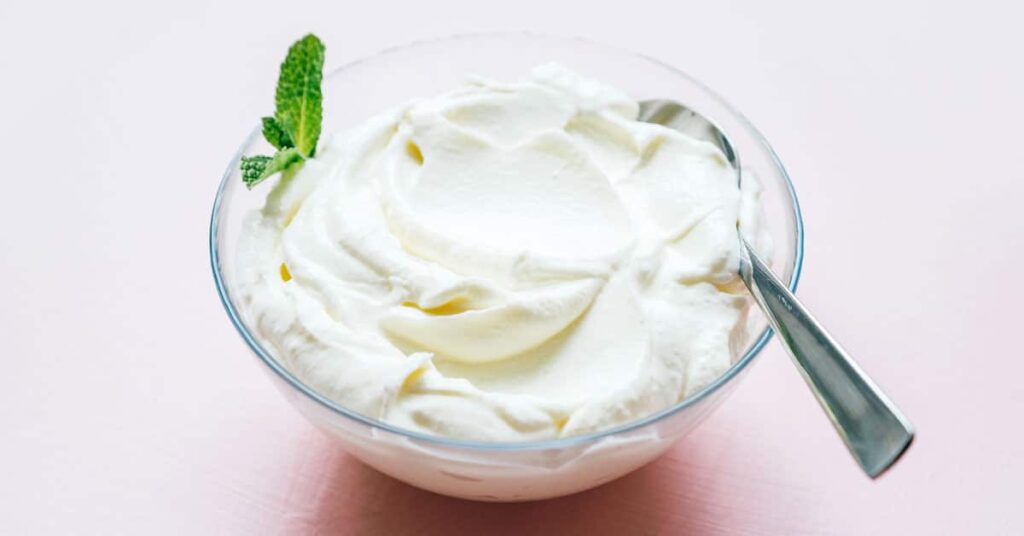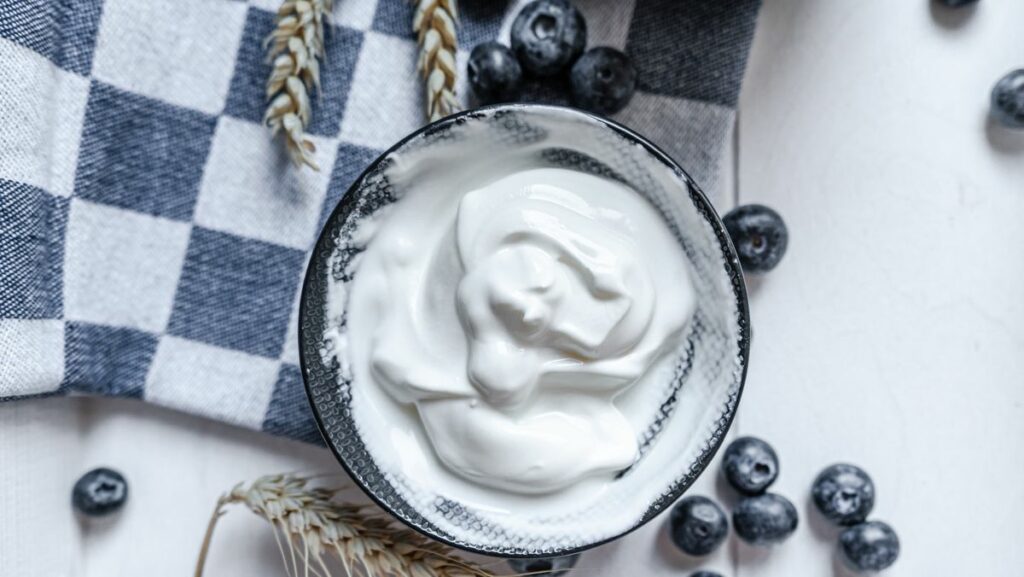What is Greek Yogurt? More Than Just a Dairy Product

Welcome to the wonderful world of Greek Yogurt! This humble dairy product has been making waves in the culinary scene, but it’s so much more than just a creamy addition to your breakfast bowl. Often lauded as a healthier alternative to regular yogurt, Greek yogurt stands out with its thick texture and tangy flavor. But what makes it truly unique?
Let’s dive into the fascinating journey of Greek yogurt from simple milk to a versatile superstar in kitchens around the globe, revealing why it’s not just a dairy product, but a cultural phenomenon and a nutritional powerhouse.
Quick Facts About Greek Yogurt
| Quick Facts | Details |
|---|---|
| Origin | Greece |
| Main Ingredient | Milk and live active cultures |
| Texture | Creamy and thick |
| Taste | Tangy and less sweet than regular yogurt |
| Nutrition | High in protein, calcium, probiotics, and vitamin B12 |
| Calories | Approximately 100-150 calories per serving (non-fat) |
| Protein Content | About 15-20 grams per serving |
| Fat Content | Varies; non-fat to full-fat options available |
| Sugar Content | Lower than regular yogurt due to the straining process |
| Dietary Suitability | Suitable for vegetarians, gluten-free diets |
| Common Uses | Breakfast, snacks, baking, marinades, dressings |
| Health Benefits | Good for gut health, bone health, weight management |
| Popular Brands | Fage, Chobani, Oikos, Yoplait, Siggi’s |
| Shelf Life | Up to two weeks refrigerated after opening |
What is Greek Yogurt?

Greek Yogurt, a culinary gift from the sunny lands of Greece, is much more than just a dairy product. It’s a creamy, tangy delight that has taken the world by storm with its distinctive taste and texture. Known for its thicker consistency compared to regular yogurt, Greek Yogurt is created through an age-old process that involves straining out the whey, resulting in a product that’s denser and packed with protein.
But Greek Yogurt isn’t just about pleasing the palate. It’s a nutritional powerhouse, too. Packed with protein, calcium, probiotics, and vitamin B12, it’s a health enthusiast’s dream. Whether you’re looking to build muscle, improve your gut health, or simply add a dose of essential nutrients to your diet, Greek Yogurt is a delicious and versatile choice.
What makes Greek Yogurt truly unique is its versatility. Start your day with a bowl of Greek Yogurt topped with fresh fruits and granola, use it as a base for smoothies, or incorporate it into your baking for a moist and rich texture. It’s also a perfect substitute for sour cream and mayonnaise, adding a tangy twist to your dips and dressings.
In a world where health and taste are often at odds, Greek Yogurt stands as a delightful exception. So, next time you’re navigating the dairy aisle, reach for that tub of Greek Yogurt. It’s not just a food; it’s a lifestyle choice that embodies health, flavor, and the rich culinary heritage of Greece.
What Does Greek Yogurt Taste Like?
Greek yogurt has a unique taste that sets it apart from regular yogurt. It’s known for its tangy, slightly tart flavor, which is a result of the fermentation process during its making. The straining process used to make Greek yogurt removes much of the whey, resulting in a product that is thicker and creamier, with a more concentrated yogurt flavor.
Though it’s less sweet than regular yogurt, Greek yogurt has a rich, decadent mouthfeel that many people find enjoyable. The taste can also vary depending on whether you’re eating plain Greek yogurt or a flavored variety, which may have added fruits, sweeteners, or other flavors.
It’s worth noting that the tanginess of Greek yogurt can be balanced out when used in recipes or paired with sweet toppings like honey, fruit, or granola, making it a versatile addition to many dishes. In a nutshell, Greek yogurt offers a delicious combination of tangy flavor and creamy texture that makes it a favorite in many households.
Greek Yogurt Tasting Notes

- Texture: Greek yogurt is known for its thick, creamy texture. The straining process during its production removes much of the whey, resulting in a denser product compared to regular yogurt.
- Flavor: The taste of Greek yogurt is distinctively tangy and slightly tart. This unique flavor profile is a result of the fermentation process that it undergoes.
- Sweetness: Greek yogurt is less sweet than regular yogurt due to the straining process which removes much of the lactose (milk sugar). However, sweetness levels can vary depending on whether it’s plain or flavored with added fruits or sweeteners.
- Richness: The concentrated nature of Greek yogurt gives it a rich, decadent mouthfeel that is often described as luxurious or indulgent.
- Cooling Effect: Greek yogurt has a cooling effect on the palate, which makes it an excellent accompaniment to spicy dishes or a refreshing standalone snack.
- Versatility: The taste of Greek yogurt can be easily balanced or enhanced depending on its pairing. When matched with sweet toppings like honey or fruit, the tanginess is balanced, and when used in savory recipes, it adds a creamy tang to the dish.
- Aftertaste: Greek yogurt leaves a clean, slightly tangy aftertaste that is generally considered pleasant and refreshing.
What is the Difference Between Greek Yogurt and Regular Yogurt?
Greek yogurt and regular yogurt start off the same, both being fermented milk products, but diverge in their process, resulting in different textures, tastes, and nutritional content.
| Criteria | Greek Yogurt | Regular Yogurt |
|---|---|---|
| Process | Strained multiple times to remove whey, resulting in a thicker consistency. | Less strained and retains more whey, resulting in a thinner consistency. |
| Texture | Thick and creamy due to the removal of whey. | Thinner and more liquid because it retains more whey. |
| Taste | Tangier, less sweet taste as straining removes much of the lactose. | Typically sweeter due to higher lactose content. |
| Protein Content | Higher protein content, often twice as much as regular yogurt. | Lower protein content compared to Greek yogurt. |
| Carbs and Sugar | Lower carbs and sugar because most lactose is removed during straining. | Higher carbs and sugar due to more lactose. |
| Calories | Generally has fewer calories in plain varieties. Calorie content can vary based on brand and flavorings. | Calorie content can vary, but flavored varieties usually have more calories than plain Greek yogurt. |
| Calcium | Contains less calcium than regular yogurt due to the straining process. | Usually contains more calcium than Greek yogurt. |
Is Greek Yogurt Healthy?
Yes, Greek yogurt is considered healthy due to its rich nutrient profile. Here are 5 main reasons:
- High in Protein: Greek yogurt is high in protein, which is essential for building and repairing tissues, making hormones and enzymes, and supporting overall growth and development. Protein also helps keep you full, which can aid in weight management.
- Probiotics: Greek yogurt contains live cultures (probiotics) that can support gut health by improving digestion and boosting the immune system.
- Low in Sugar: Plain Greek yogurt is low in sugar, as much of the lactose (milk sugar) is removed during the straining process. However, flavored varieties may contain added sugars, so it’s best to read labels carefully.
- Calcium and Vitamin B12: While it has less calcium than regular yogurt, Greek yogurt still provides a good amount of this important mineral, which is necessary for bone health. It’s also a good source of vitamin B12, which is important for nerve function and the production of red blood cells.
- Low in Sodium: Greek yogurt is lower in sodium compared to many other dairy products, making it a good choice for those watching their salt intake.
However, like any food, Greek yogurt should be consumed as part of a balanced diet. Also, keep in mind that not all Greek yogurts are created equal. Some can be high in added sugars and artificial ingredients, so always check the nutrition label. Opt for plain, unsweetened varieties when possible, and consider adding your own fruits or a drizzle of honey for sweetness if desired.
Greek Yogurt Nutrition Facts
Sure, here’s a detailed nutrition facts table for Greek Yogurt. These values are based on a typical serving size of 1 cup (200 grams) of plain, non-fat Greek yogurt. Keep in mind that these values can vary depending on the brand and whether any additional ingredients or flavorings are included.
| Nutrient | Amount |
|---|---|
| Calories | 130-140 kcal |
| Protein | 23-25g |
| Fat | 0-1g |
| Saturated Fat | 0g |
| Carbohydrates | 10-12g |
| Fiber | 0g |
| Sugar | 7-9g |
| Sodium | 70-80mg |
| Calcium | 200-250mg |
| Vitamin D | Varies, some brands fortify their yogurt with Vitamin D |
| Vitamin B12 | 1.3mcg |
How to Eat Greek Yogurt?
- Protein-Packed Smoothies: Blend Greek yogurt with a mix of your favorite fruits, a handful of spinach, and a dash of honey for a nutritious, protein-packed smoothie.
- Savory Dips: Combine Greek yogurt with herbs and spices to create a healthy dip for veggies or whole wheat pita chips.
- Creamy Salad Dressings: Swap out heavy, calorie-laden dressings for a lighter version made with Greek yogurt, lemon juice, and herbs.
- Healthy Baking Substitute: Use Greek yogurt as a healthier substitute for butter or oil in baking recipes.
- Breakfast Bowls: Top Greek yogurt with fresh fruit, nuts, and a drizzle of honey for a balanced breakfast bowl.
- Marinades: Marinate your meat in a mixture of Greek yogurt and spices. It will tenderize the meat and add a tangy flavor.
- Frozen Yogurt Treats: Mix Greek yogurt with mashed fruit and a bit of honey, then freeze in popsicle molds for a healthy dessert.
- Pasta Sauce: Stir Greek yogurt into hot pasta along with some garlic and parmesan for a creamy, protein-rich sauce.
- Topping for Spicy Foods: The coolness of Greek yogurt can help offset the heat from spicy dishes. Use it as a topping for foods like chili or spicy curries.
- Protein Boost in Oatmeal: Stir Greek yogurt into your morning oatmeal for an added protein boost.
10 Best Greek Yogurt Substitutes
| Substitute | Texture | Best Used In |
|---|---|---|
| Sour Cream | Creamy and tangy | Dips, dressings, baking |
| Regular Yogurt | Thinner than Greek yogurt, slightly tangy | Smoothies, marinades, baking |
| Buttermilk | Liquid, tangy | Baking, dressings, marinades |
| Cottage Cheese | Chunky, mild flavor | Dips, spreads, baking |
| Crème Fraîche | Thick and creamy, less tangy | Dips, sauces, desserts |
| Coconut Cream | Thick and creamy, slightly sweet | Vegan baking, desserts, curries |
| Silken Tofu | Smooth, bland flavor | Vegan baking, smoothies, dips |
| Kefir | Liquid, tart flavor | Smoothies, dressings, baking |
| Mayonnaise | Creamy, tangy | Dressings, sandwiches, dips |
| Ricotta Cheese | Creamy, mild flavor | Desserts, baking, pasta dishes |
What Pairs Well With Greek Yogurt?

Food that goes well with Greek Yogurt:
| Category | Food Pairings with Greek Yogurt |
|---|---|
| Bread/Biscuits | Whole Grain Bread, Pita, Rice Cakes, Oatmeal Cookies |
| Fruits | Berries, Bananas, Peaches, Apples |
| Meats | Grilled Chicken, Roasted Turkey, Lamb, Smoked Salmon |
| Vegetables | Cucumbers, Bell Peppers, Carrots, Cherry Tomatoes |
| Nuts & Seeds | Almonds, Walnuts, Chia Seeds, Flax Seeds |
| Condiments & Spreads | Honey, Fruit Preserves, Almond Butter, Granola |
| Desserts | Fruit Parfait, Cheesecake, Angel Food Cake, Sorbet |
| Seafood | Shrimp Salad, Tuna, Crab Cakes, Lobster |
| Pasta & Grains | Quinoa Salad, Whole Wheat Pasta, Brown Rice, Farro |
| Herbs & Spices | Mint, Dill, Cinnamon, Nutmeg |
Also read: What Fruit Goes on a Charcuterie Board?
Beverage that goes well with Greek Yogurt:
| Type of Beverage | Pairs Well With Greek Yogurt |
|---|---|
| Coffee | A cup of coffee or cappuccino pairs well with Greek yogurt, especially when topped with granola or fruit. |
| Tea | Black, green, or herbal tea can complement the tanginess of Greek yogurt. |
| Smoothies | Blending Greek yogurt into smoothies with fruits or vegetables enhances the creaminess and adds protein. |
| Fruit Juices | Fresh fruit juices like apple, orange, or pineapple can balance the tartness of Greek yogurt. |
| Milk Alternatives | Almond milk, oat milk, or soy milk can be blended with Greek yogurt for a creamy, nutritious drink. |
| Protein Shakes | Adding Greek yogurt to protein shakes can boost the protein content and add a creamy texture. |
| Water | Plain, sparkling or mineral water can be a refreshing contrast to the rich taste of Greek yogurt. |
| Wine | Light white wines or rosé can pair surprisingly well with Greek yogurt dishes. |
| Craft Beers | Light craft beers can complement Greek yogurt, especially in savory dishes. |
| Non-alcoholic Cocktails | Non-alcoholic fruit cocktails can provide a sweet counterpoint to Greek yogurt’s tang. |
Also read: Top 10 Champagne & Cheese Pairings to Try at Least Once
Also read:
- What is Crème Fraîche? Unpacking the French Culinary Staple
- What is Aged Cheddar? The Cheese That Stands the Test of Time
- What is Mizithra? Greece’s Gift to the Cheese World
- What is Goat Brie? A Unique Twist on a Classic Cheese
- What is Cambozola? Germany’s Unique Hybrid Cheese
- What is Crema Mexicana? The Creamy Crown of Mexican Cuisine
- What is Red Leicester? The Ruby of English Cheeses





